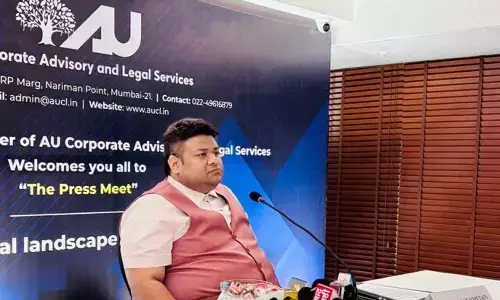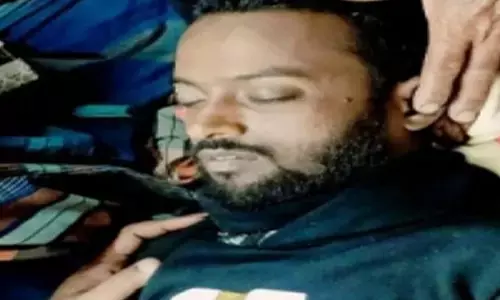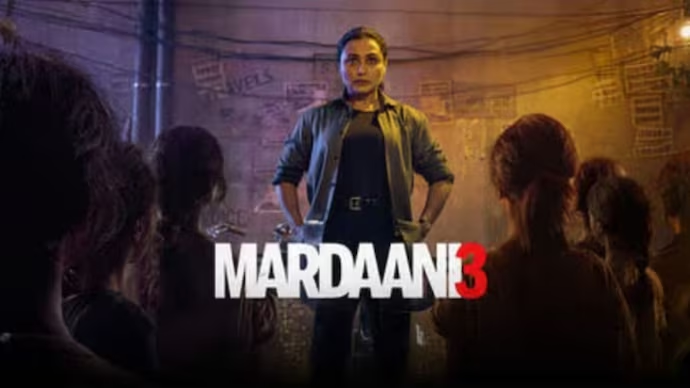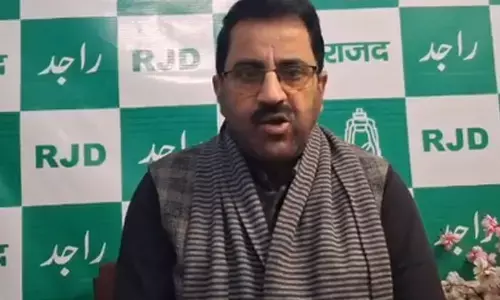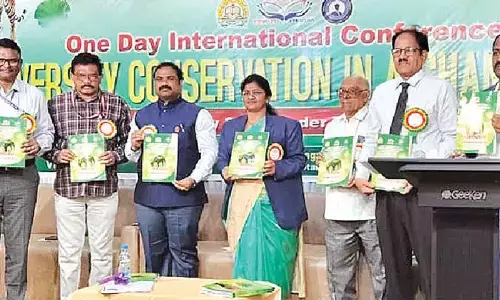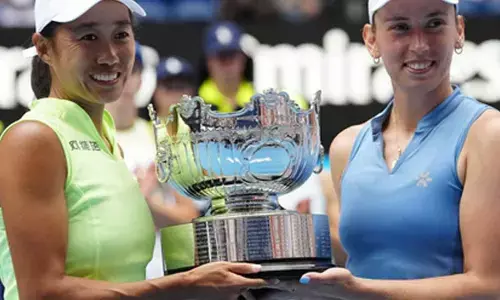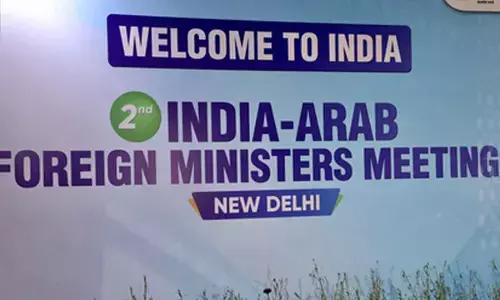Why do tribals need separate education system?
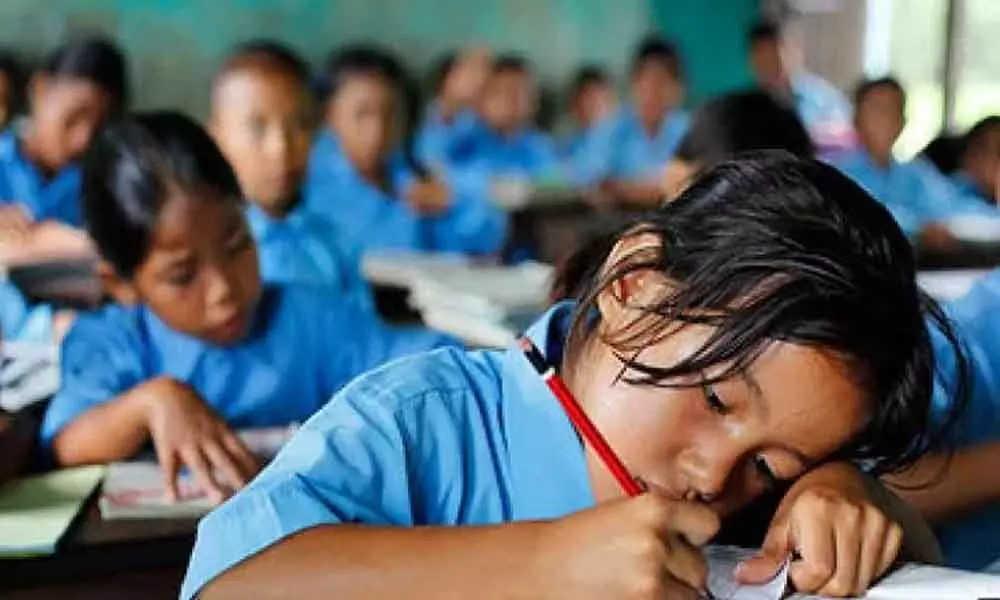
We witnessed a number of times tribals carrying their family members on the yoke miles together for medical facility which is far away from their habitations.
We witnessed a number of times tribals carrying their family members on the yoke miles together for medical facility which is far away from their habitations.
They lose their valuable lives due to administrative lapses. Contrarily, they never like to leave their forests.
The tribals have a separate or we can say a parallel administration system within their reach as per the Constitutional provision.
The Integrated Tribal Development Agencies emerged in the tribal areas as per the great recommendations of Dr B.D. Sharma IAS and S.R. Sankaran IAS who contributed a lot for the tribal development.
The ITDAs were established in the vicinity of the tribal population near the forests with a noble cause of taking the administration to their reach. These ITDAs would provide medical facilities within the stretch of the forest.
They would even form mobile health centres for the purpose. Rarely do we find such centres saving the lives of these poor people!
Similarly the ITDAs would try to provide education in the precincts of the tribal thickets trying to woo the school-aged children towards education.
The children from the hillocks will be given free education. As we are all aware the language of the tribals is purely their own dialect and the tribals are compelled to be exposed to a new language in the present education system. Besides they will have to learn native (state), national and even international languages.
The names of the persons, places and many such things are unfamiliar to them and consequently they will not get interested to learn them.
Basically their culture, their festivals and even their names are never reflected in the curriculum. Unfortunately their culture and dances are exposed only when the VIPs visit the places or on any important occasion and they will be just paid artistes.
When we observe the curriculum, no topic, no activity and no programme will be interesting to the tribals. All the curricular activities are totally languid, insipid and unenthusiastic to the tribal learners.
In addition to that the subjects, topics and their learning experiences are more and merely discouraging and even distracting.
They can neither learn these new ones nor master their own skills. Ultimately they are rendered drop outs or redundant and we are unable to meet or understand their needs.
A tribal is physically strong. He is industrious by nature. He is born with natural skills. His physique can best be used in sports and even adventure sports.
Tribals have proved their mettle at national and international arena. They are good archers by birth. They are good at hunting. The only thing to be done is to hone their skill.
They can save their lives from poisonous creatures by using some forest herbs, leaves and their extracts. They have got good defence mechanism as well. They build some small bridges to cross the rivers and rivulets in the forests. They are good at engineering also.
No beautician or a fashion expert by profession can make an invisible knot in the hair as skilfully as an uneducated or untrained innocent tribal woman. Their culinary skills are amazing.
The tribals are good at agriculture. They know what to grow, where to grow and when to grow. They can predict the vicissitudes in atmosphere better than an educated person. They are well-versed in cattle-rearing and even forest products.
They live together, help each other and celebrate with one another and in groups. That's their spirit of democracy.
There are good freedom fighters among them who did not unfortunately come into lime light due to the hegemony of our political parties and the innocence of the tribals.
It's evident that there are agriculturists, scientists, doctors, pharmacists, engineers, beauticians and stunning sports persons like archers and wrestlers among the tribals.
But no curriculum in India has ever tried to hone or sharpen their skills. Nor has any educationist or academician tried to mention about them. Why don't the textbook writers include them in the syllabus?
Are they not a part of our society? No policy has ever been successful to attract them or make them join the mainstream.
Some States have put in their efforts towards preparing and providing textbooks in the tribal vernaculars. These unsung heroes should be given due importance in the general text books also.
Their culture, festivals and food habits are to be given equal priority. Some of the groups are on the verge of extinction. We treat them as particularly vulnerable tribal groups who are just hundreds or thousands in population.
Care should be taken to protect and prolong these groups. The civilisation and culture of these indigenous people should be exposed to the outer world.
So far, the tribals have stood Mr Cleans in this polluted and corrupted world. They are in no way inferior to the other members of the society provided opportunities are created.
To enable these groups compete with others, they should be brought into lime light by giving ample opportunities. A separate curriculum should be framed to bring these groups into the mainstream. Separate textbooks are direly required to invite them into the society.
Some teachers or tribal teachers should be given training in teaching these groups. Even examinations need to be conducted separately for them.
How one can expect the tribals to compete with the developed students who get quality education in and exposure to various things in the towns and cities despite the constitutional reservations provided to the former, thanks to Dr B.R. Ambedkar, the architect of the Indian Constitution?
It's not the marks to be decreased in the competitive examinations but the skill-oriented and tribe-centred curriculum that makes them compete with the outer world.
One should not forget they have been rendered ignorant and deprived for ages together. The discrimination they suffered should be counteracted through discretionary acts and actions.
These indigenous people had a great civilization behind them and it should be unearthed and unveiled.
Tribal studies need to be encouraged and a lot of research should be done on their culture. The injustice meted out to them for generations has to be addressed and their issues to be redressed.
Text books should be prepared in their languages or dialects so as to get them interested in learning. They are adept in certain professions. Such courses can be introduced right from secondary level.
Meticulous planning at higher level and effective implementation at the grass root level are sure to yield better results.
The tribals should take the outer world into confidence before they want to join the mainstream. Their empowerment through employment which comes from education should be realized and materialized.
It's time the curriculum designers pondered over it and do justice these groups.
Some of the tribal groups are nomadic in nature. They go on wandering to eke out their livelihood. They are exposed to the outer world. They are good at forecasting and making bamboo products and even handicrafts.
It's the duty of the governments, NGOs and even the Agencies to persuade them and provide them education as they need.
It should be remembered that even the first generations of these groups, particularly the Adivasis or the ethnic groups should be given due importance in the curriculum or a separate curriculum may be designed or framed for them keeping their separate entity and gradually they should be integrated in to the common society by creating opportunities.
They should not be exploited by the developed or educated people. Their weekly shandies reflect a clear picture how they market their products and take away what they need without using money or making cashless transactions.
They exchange their products there. At times they exhibit a spirit of developed societies but we, the developed societies have estranged them or proved hostile towards them.
The tribals are the neglected groups.
They should be made realize the importance of education through their own dialects, vernaculars, anecdotes, cultural heritage and festivities. These things should be given due importance in the curriculum.
Nowhere do we find such things in the general curriculum. That's why they need a separate curriculum that highlights their own language and culture to a certain class and gradually it should be gradually integrated into the general curriculum.
Until and unless such policies are evolved and executed perfectly, all these plans and words are merely insincere efforts and prove futile to uplift them.
The curriculum designers and the textbook writers should keep them in mind to make them join the mainstream.









